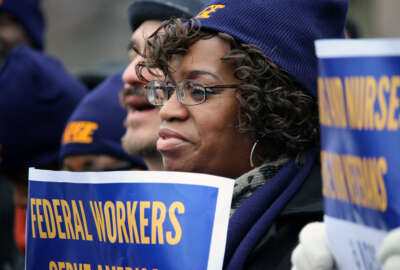
Federal labor relations: Talking to the unhearing
Are labor relations at SSA, VA so bad they'll never get better?
I’m not much of a baker. My occasional short-temper doesn’t help. Once I was trying to ice a cake. Maybe the cake was still too warm. Or the icing too cold. Like bad hair, the more I primped and prodded the thing, the messier it got. Finally, exasperated, I scooped the whole thing up and hurled it into the sink, there to be devoured by the InSinkErator.
Federal labor relations seem like a bad concoction these days. The cake isn’t getting along with the icing.
- At Social Security, the Federal Service Impasses Panel sided mostly with management and against the American Federation of Government Employees in a monumental dispute. Now the AFGE is reportedly seeing whether it can challenge the Panel’s decisions in court.
- Social Security is also stuck in negotiations with its administrative law judges. But now the judges’ association wants to pause talks, urging the new commissioner, Andrew Saul, to resolve an issue of the judges’ reporting hierarchy.
- At the Department of Housing and Urban Development, management has followed the source of its counterpart at Social Security and invoked the Panel. As Nicole Ogrysko reported, the union likens the panel to a school principal’s office where results are unpredictable.
- Barely a week into negotiations with Veterans Affairs, AFGE launched nationwide rallies, accusing VA management of “plots” and “schemes” to wreck working conditions and privatize VA health care.
- Latest numbers from the Merit Systems Protection Board peg at 46% the number of Federal employees who have seen or experienced harassment, whistleblower retaliation, discrimination or nepotism, up a third from five years earlier.
I think federal labor relations look as bad as I can remember.
On the bargaining agreement front, they’re fighting over official time, telework, office space, grievance procedures, and post-contract memoranda the union wants to carry over to new agreements. Even over who pays travel costs for grievance witnesses. I don’t know who is right here, but I can certainly understand the union’s perception that management wants to squeeze it into virtual oblivion by choking off resources, like offices and phones, it’s been used to having for years. Management, too, has a desire to streamline contracts, speed up processes, and increase it’s own discretion.
Fundamentally, it’s a fight for the soul of the federal workplace.
The problem is as old as the larynx and the eardrum: People are talking but not listening.
Unlike my doomed cake, you can’t toss federal workplace and their labor relations. The two sides are permanently stuck with one another. The union can’t strike, management can’t bring in scabs, er, replacement workers. (I walked a picket line once, not a rally but an actual work walkout. It ain’t fun.)
For me, the real question is whether normal human workplace relations can occur after talks that feel like an irresistible force pushing on an immovable object. After hurried referrals by one side to a panel of which the other side harbors deep suspicions. After lawsuits. I mean, once you put cake and icing in a blender, you can’t run the blender in reverse and start over.
Copyright © 2025 Federal News Network. All rights reserved. This website is not intended for users located within the European Economic Area.
Tom Temin is host of the Federal Drive and has been providing insight on federal technology and management issues for more than 30 years.
Follow @tteminWFED






